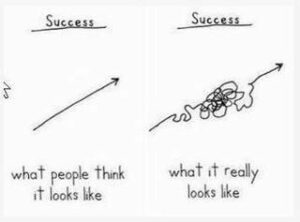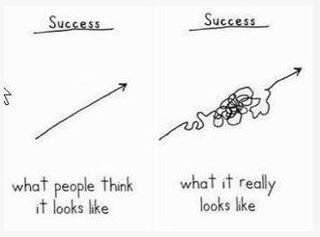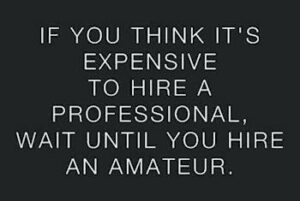 I’m a big believer in CANI – Constant and Never Ending Improvement (or Kaizen). It’s one of the core values I live by and it’s one of the joys of life.
I’m a big believer in CANI – Constant and Never Ending Improvement (or Kaizen). It’s one of the core values I live by and it’s one of the joys of life.
So, in that spirit, I wanted to share with you four things I learned about start-ups, business, and life during 2012.
Lesson 1: Get the right people on the bus.
Nothing trumps getting the right team in place. And the ‘right team’ differs depending on the stage and growth of the company. Knowing when to bring in outside help is a tough skill to learn for most founders because our decisions become skewed by (a) what we don’t know – such as who else is out there that could rock the job and (b) our loyalty to the current team.
When you do hire outside, make sure you plan in advance so you have the time to thoroughly vet out the candidates.
We made a major hiring mistake at the executive level early 2012 that cost us dearly. Without going into too much detail, we got enamoured with the big company names and titles on the resume and didn’t do enough diligence checking references – both the ones that were offered, but more importantly, the ones that weren’t.
My advice for doing senior hires is to check both up and down the reporting chain. Check with their superiors (which we did) AND check with people that reported into the person (which we did not). If we would’ve looked deeper we would have found that the person we were considering was not a good match.
Brian Tracy always says to hire slow and fire fast.
Lesson 2: Put people in a position to succeed.
I’ve found that it’s not enough to get the right people on the bus. You also have to make sure they’re sitting in the right seats.
I learned this the hard way.
The company needed a Product Manager lead, so I took one of my best performing people and put them in the role. He was a quick learner and I figured he’d be able to figure out what we needed. From day one, he told me that he’d give it his best shot, but that he didn’t know what he was doing. 3 months later, the role had not advanced, the Product department was at a standstill, and one of my best guys was spending his days reading books on how to do product management.
Rather than just hire an expert in the field, I put someone in the role who didn’t understand it. Yes, he could’ve become a great Product leader, but it was going to take a year to get him there, and we didn’t have that much time.
Find people who play at things you have to work at.
Lesson 3: Prepare for Rain.
One thing is for certain. It’s gonna rain. And the team that has thought through what might happen will be better prepared for the storm. In Jim Collins’ latest book, Great by Choice, he calls it Productive Paranoia. It means that those that perform the best in business assume that things will – at some point – go wrong.
The 10X winners in our research always assumed that conditions can—and often do—unexpectedly change, violently and fast. They were hypersensitive to changing conditions, continually asking, “What if?” By preparing ahead of time, building reserves, maintaining “irrationally” large margins of safety, bounding their risk, and honing their disciplines in good times and bad, they handled disruptions from a position of strength and flexibility. They understood, deeply: the only mistakes you can learn from are the ones you survive.
Collins, Jim; Hansen, Morten T. (2011-10-11). Great by Choice: Uncertainty, Chaos, and Luck–Why Some Thrive Despite Them All (p. 102). HarperBusiness. Kindle Edition.
In our company, we’re optimists. While that plays to our advantage in most cases, we’ve learned that it can be a detriment if we fail to protect the downside.
In 2013, we’ve decided to do things a bit differently.
We still believe we can conquer the world (of course we can!), but we are putting in place definitive finance contingency plans just in case we’ve overestimated our ability to perform. This gives us a fallback plan that allows us to react quickly to several market scenarios and bounds our downside risk.
This does not mean we are risk averse or shying away from big plan. Oh no. Just the opposite actually. We have bigger plans this year than we’ve ever had. However, in addition to the optimistic plan, we have a strategy to protect us in case those plans go awry. We know where we need to be
Lesson 4: Life is an Ebb and Flow
I live in San Diego and regularly get the pleasure of watching waves come crashing into the sand. Then, just as easy as they roll onto the beach, they subside back into the ocean.
Business is a lot like that. It’s filled with highs and lows – ebbs and flows.
What I learned was to not let the highs get me too high, or the lows get me too low. Just as everything seems to be going our way, there’s always a next unexpected slap to the face. And, when I have my “oh shit” moments, I can rest easy knowing that ‘this, too shall pass’.
This helps me have the resolve to fight on in the darkest of hours, and it keeps me from believing my own bullshit in the good times.
Question for you…
What business or life lesson did you learn in 2012?


Great post, Steve!
In 2012, I learned that life is forever changing, but I’m resilient enough to survive the changes. I also learned that the more open I am about my “truth”, the better people receive my work whether my poetry, a blog, or a book. I also learned the importance of releasing product in a timely manner balancing taking the time to release the best product I can and releasing often enough to keep people engaged. I also learned, or at least was reminded, of the importance of taking time for fun even in the midst of pursuing my goals.